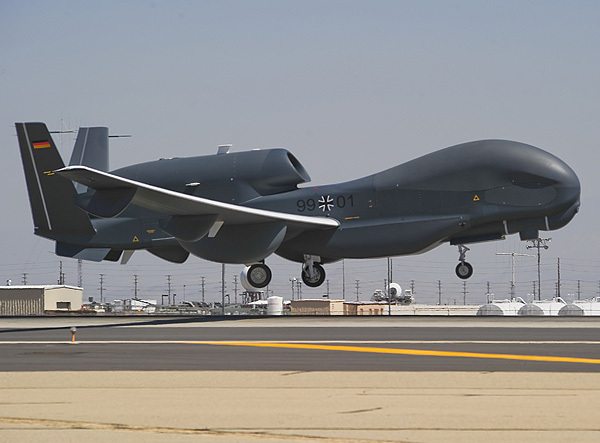Three top European defence firms called Sunday on governments to launch a program to manufacture drones that European countries are currently having to buy from Israel or the United States.
France’s Dassault Aviation, European aerospace giant EADS and Italy’s Finmeccanica argued such a joint program would “support the capability needs of European armed forces while optimizing the difficult budgetary situation through pooling of research and development funding”.
They said in a statement they were prepared to work together on the creation of a European MALE (medium-altitude, long-endurance) drone, which allows surveillance of vast areas over 24 hours.
The trio declared their “readiness to coordinate on such a program supporting the security needs of our European governments and armed forces.”
The pledge to work together appeared to be a sign that Dassault and EADS were burying the hatchet after years of difficult relations, notably over MALE drones.
The drones, until now manufactured only by Israel and its chief ally the United States, have been used in modern warfare, notably in Afghanistan and Mali.
French Defence Minister Jean-Yves Le Drian said on Tuesday that Paris intended to buy 12 “Reaper” observation drones from the United States in a deal worth some 670 million euros ($894 million).
He criticized the fact that these could not be manufactured and bought in Europe, estimating that European countries need as many of 40 of the high-tech craft.
Last month, Germany scrapped a plan to buy four “Euro Hawk” unmanned surveillance drones, much larger “strategic” planes, citing fears that aviation authorities would not certify them.
But the advantage of a joint European drive, said the three companies, would be that “critical requirements around the certification of drones… would inherently be built into the program from the onset”.
“European sovereignty and independence in the management of information and intelligence would be guaranteed while at the same time delivering a robust system resilient against cyber attacks,” they said.
Information obtained from drones currently passes through the United States or Israel as there is no “European” means of transmission.
Experts believe the market in drones is one of the few sectors in which the European aerospace industry can make in-roads, given that the next generation of combat jets is not expected in the skies until 2030.
“Europe has lost at least 10 years” in this sector, EADS boss Tom Enders told reporters on Thursday, adding: “The longer it takes, the more dominant the Americans and the Israelis will be.”










